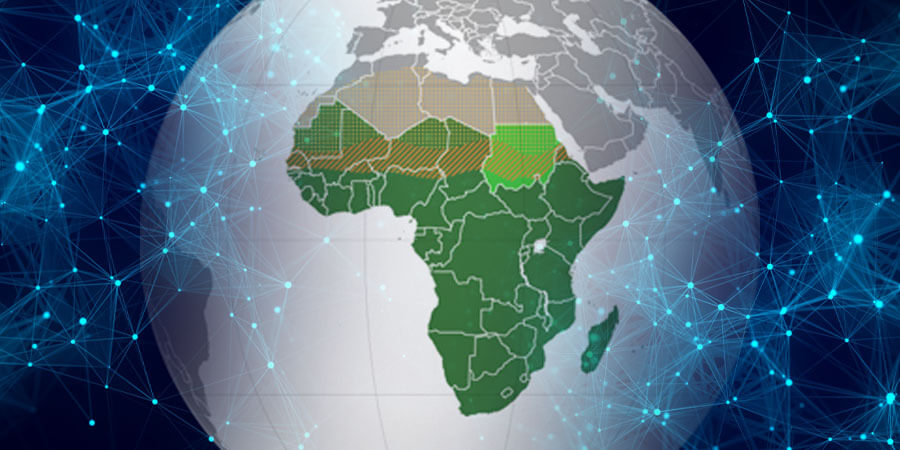South Africa stands at a pivotal moment in its journey toward establishing a fully digitized economy by 2030. With a growing emphasis on technology as a driver of economic development, the country is focusing on building a resilient, inclusive, and innovative digital economy that can address pressing socio-economic challenges while enhancing global competitiveness.
Features
Sub-Saharan Africa’s State of Connectivity as of 2024
As of 2024, an estimated 5.5 billion (68% of the world’s population) people actively engage in online activity; however, despite this seemingly efficacious coverage, Sub-Saharan Africa remains the region with the lowest connectivity levels globally, with significant disparities in mobile internet adoption and coverage.
Driving Connectivity and Competition with eSIM Adoption in Africa
The adoption of embedded SIM (eSIM) technology is steadily transforming the telecommunications landscape across Africa, offering a game-changing approach to connectivity and competition. Unlike traditional SIM cards, eSIMs are digital and embedded directly into devices during the manufacturing stage, enabling users to switch networks seamlessly without the need for a physical card. This innovation holds immense potential to bridge connectivity gaps, stimulate competition, and drive economic growth across the continent.
Transforming Senegal’s Urban Transport with Intelligent Transportation Systems
As urbanization accelerates across Africa, cities face mounting challenges in managing traffic, ensuring road safety, and reducing environmental impacts. Senegal, a West African nation known for its cultural vibrancy and economic ambition, has turned to Intelligent Transportation Systems (ITS) to revolutionize its urban mobility. These innovative solutions are setting the stage for smarter and safer transport, driving economic growth, sustainability, and improved quality of life.
Transforming Grid Operations with Telecom Solutions in Cape Town
As urban centers evolve into smarter cities, efficient energy management has become a cornerstone of sustainable development. Cape Town, South Africa’s second-largest city, is leading this charge by integrating advanced telecommunication technologies to modernize its electricity grid.
Protect Your Mobile and Prevent SIM Swap Scams
In today’s hyperconnected world, mobile phones are indispensable tools for communication, banking, and managing sensitive personal information. However, with the growing use of mobile devices, cybercriminals have developed sophisticated techniques to exploit vulnerabilities, one of which is SIM swap scams. Such scams can lead to devastating financial losses and privacy breaches. This feature explores SIM swap scams, their impact, and essential steps users can take to protect their mobile accounts.
Empowering Innovation with Localized LLMs in Africa
In recent years, the rapid advancement of artificial intelligence (AI) has transformed industries worldwide. Among the most groundbreaking developments are large language models (LLMs), such as OpenAI’s GPT and Google’s Bard. While these models have shown immense potential, their effectiveness often falls short when addressing region-specific challenges. In Africa, the rise of localized LLMs is bridging this gap and unlocking new opportunities for innovation, economic development, and societal transformation.
Securing the Future with Advanced M2M Authentication
In an era where connectivity drives progress, Machine-to-Machine (M2M) communication has emerged as the cornerstone of technological evolution. These autonomous device exchanges drive groundbreaking advancements across industries, from the seamless efficiency of smart cities and the precision of industrial automation to the life-saving applications in healthcare and the innovation in transportation systems.
Transforming Telecom Operations with Network Cloudification in Africa
Africa’s telecommunications landscape is rapidly evolving, driven by the increasing demand for advanced services, the need for greater efficiency, and the rise of digital transformation. One of the most significant advancements in recent years is network cloudification, which leverages cloud computing to enhance the scalability, flexibility, and performance of telecom operations. As Africa continues to bridge the digital divide, cloudification is playing a critical role in enabling operators to scale operations, optimize resources, and deliver seamless connectivity across the continent.
Accelerating 5G Standalone with Network Slicing
The introduction of 5G Standalone (5G SA) technology represents a paradigm shift in telecommunications, unlocking unprecedented possibilities that are reshaping industries and redefining interactions with technology. Unlike its predecessor, 5G non-standalone (5G NSA), which relies on 4G infrastructure, 5G SA operates as a fully independent network. This independence enables the seamless integration of advanced features such as ultra-reliable low-latency communication (URLLC), massive machine-type communication (mMTC), and enhanced mobile broadband (eMBB). Together, these features enable transformative applications such as smart cities, autonomous vehicles, next-generation healthcare, and entertainment.














